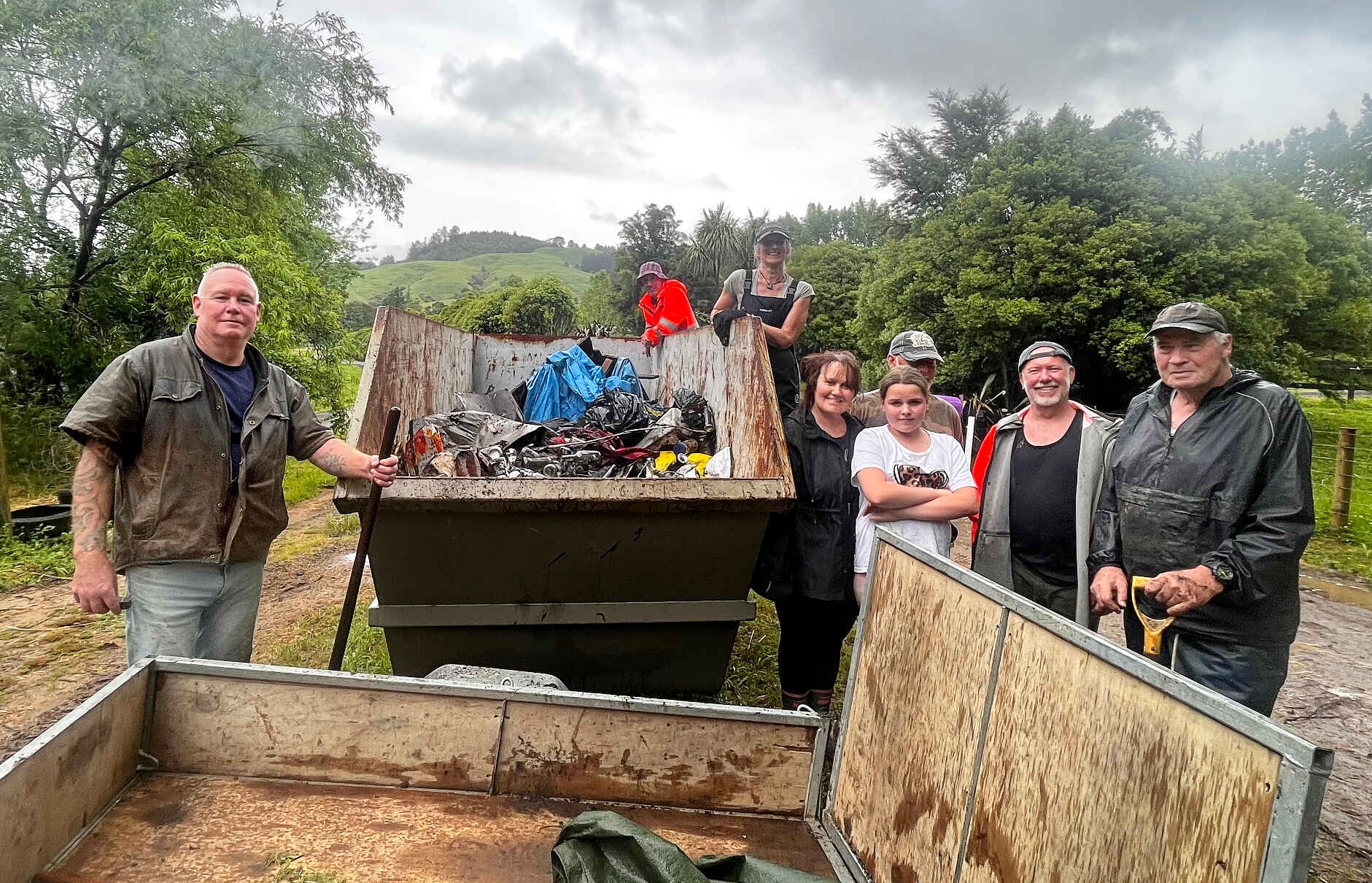Maratato residents, sick of seeing rubbish piles attracting more rubbish piles, got together for an hours-long clean-up of their valley, collecting four trailers full of illegally-dumped waste.
Inspired by the formation of the Maratoto Valley Landcare Group, 13 local adults, one child, and eight international students spent four hours cleaning up their environment.
Some of what they found in the bushes and the swimming holes was “beyond disgusting,” Christine Gibb said.
“A lot of the rubbish was a health and safety hazard… broken glass and smashed porcelain and drainage pipes. Used drug needles thrown in the swimming holes were another worry,” she said.
Among the items found illegally-dumped was: household items, plastics, car parts and tyres, clothing, gas bottles, animal carcasses, alcohol bottles and cans, human faeces, drug paraphernalia, a dog kennel, and fast food wrappers.
“The rubbish piles seemed to attract more rubbish piles. It’s like people see them and think: ‘Ah, that is a free solution’. Then we get the flies, the rodents, dogs, and hawks scattering the contents everywhere,” Christine said.
“There has always been the problem of fly tipping, but during [the Covid-19] lockdown it became chronic. People were home, cleaning out sheds, cupboards, and the dump was closed or perceived to be too costly, so the solution was to drive out to the rural valleys and dump.
“It hasn’t stopped and appears to have become a habit now,” she said.
Christine told The Profile that all of the clean-up crew agreed more needed to be done to stop illegal dumping, also called fly tipping.
“There needs to be consequences and prosecutions and better policing and reactions from authorities. [As well as] more respect from the general public,” she said.
“Maybe education and promotions on ‘taking it home’, and maybe council rubbish bins at the more popular spots would help too.”
Hauraki District Council provided a skip bin and bore the disposing costs of the clean-up, and according to its Litter Infringement Policy, control officers can issue infringements for the dumping of rubbish in a public place or on private land without the occupiers consent.
A person found depositing dangerous litter of any quantity in any place can be hit with a $400 fine, while depositing non-dangerous litter of less than 1 litre by volume in a public place, or on private land without the occupier’s consent, can warrant a $100 fine.
BY KELLEY TANTAU





